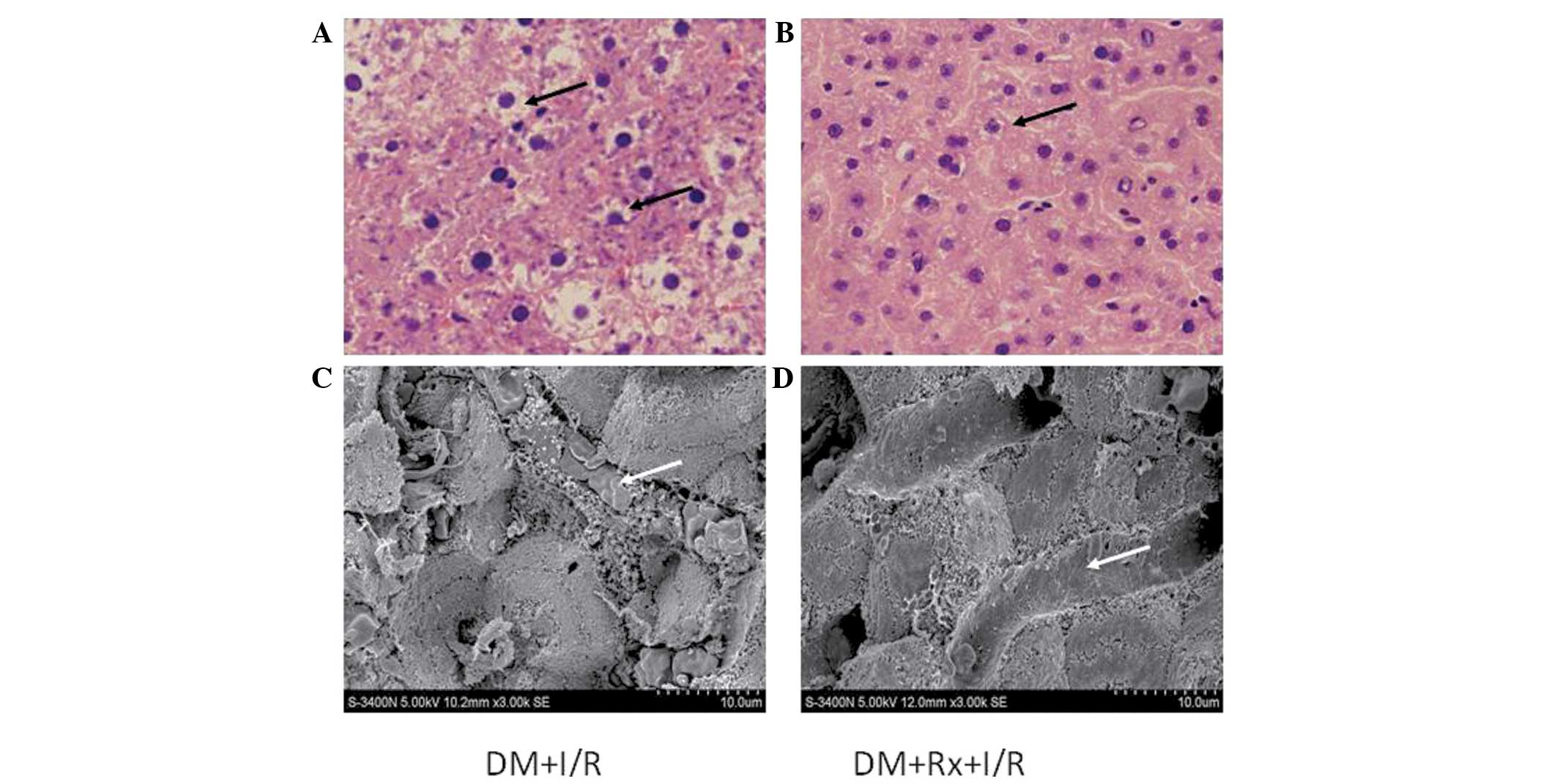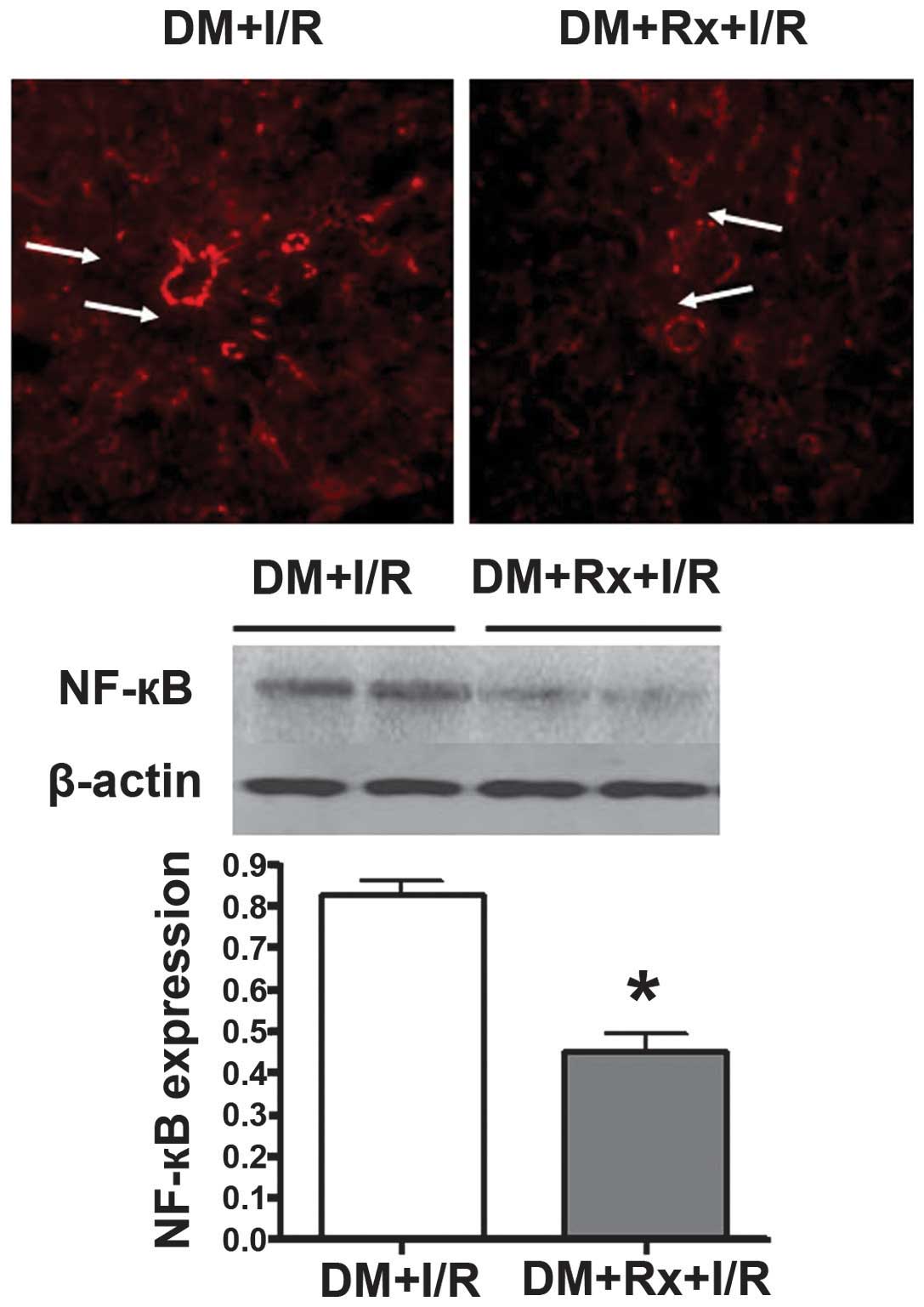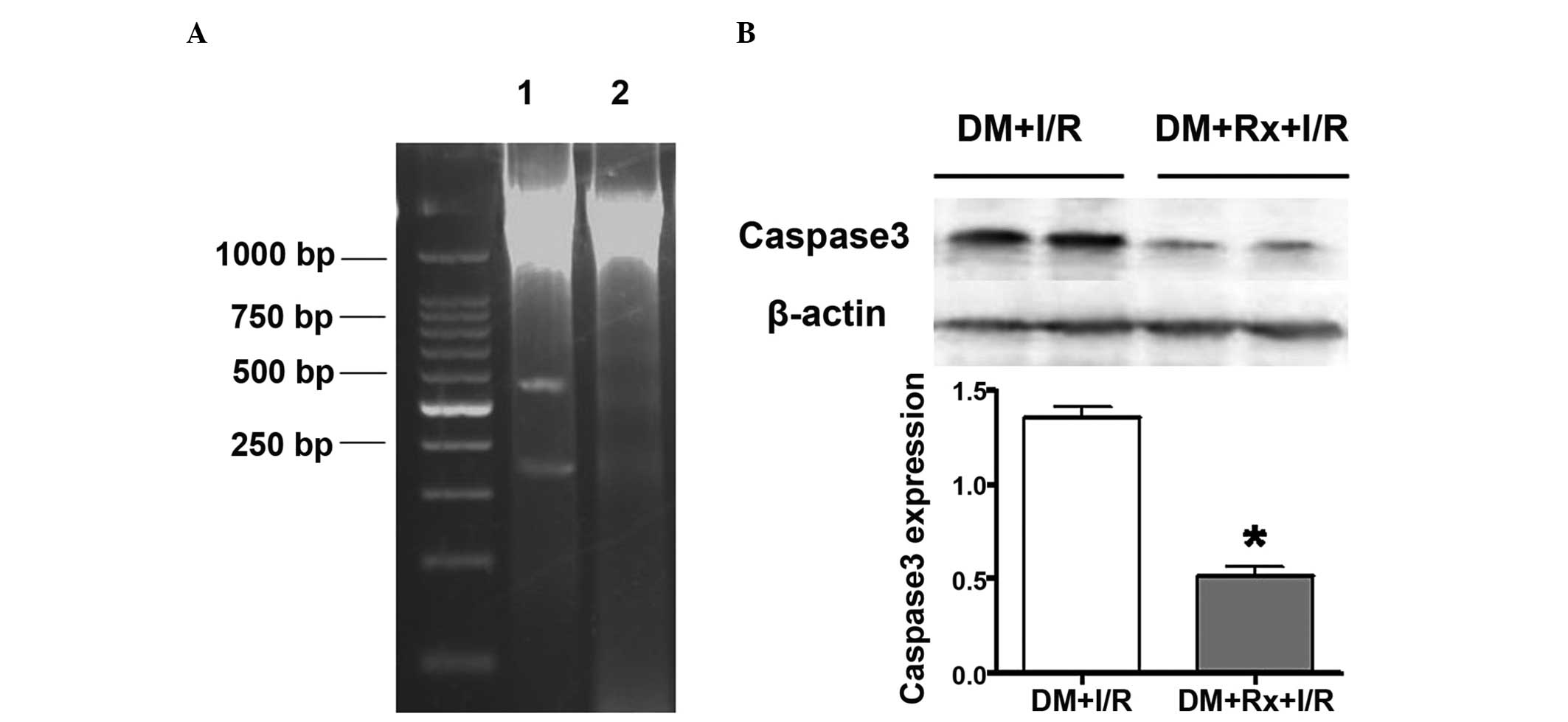|
1
|
Rahbari NN, Reissfelder C, Koch M, et al:
The predictive value of postoperative clinical risk scores for
outcome after hepatic resection: a validation analysis in 807
patients. Ann Surg Oncol. 18:3640–3649. 2011. View Article : Google Scholar : PubMed/NCBI
|
|
2
|
Karatzas T, Neri AA, Baibaki ME and Dontas
IA: Rodent models of hepatic ischemia-reperfusion injury, time and
percentage-related pathophysiological mechanisms. J Surg Res.
191:399–412. 2014. View Article : Google Scholar : PubMed/NCBI
|
|
3
|
Rahbari NN, Garden OJ, Padbury R, et al:
Posthepatectomy liver failure: a definition and grading by the
International Study Group of Liver Surgery (ISGLS). Surgery.
149:713–724. 2011. View Article : Google Scholar : PubMed/NCBI
|
|
4
|
Schmidt R: Hepatic organ protection: from
basic science to clinical practice. World J Gastroenterol.
16:6044–6045. 2010. View Article : Google Scholar : PubMed/NCBI
|
|
5
|
Su AP, Cao SS, Le Tian B, et al: Effect of
transjugular intrahepatic portosystemic shunt on glycometabolism in
cirrhosis patients. Clin Res Hepatol Gastroenterol. 36:53–59. 2012.
View Article : Google Scholar : PubMed/NCBI
|
|
6
|
Çekın AH, Gür G, Türkoğlu S, et al: The
protective effect of L-carnitine on hepatic ischemia-reperfusion
injury in rats. Turk J Gastroenterol. 24:51–56. 2013.PubMed/NCBI
|
|
7
|
Yang J, Sun H, Takacs P, et al: The effect
of octreotide on hepatic ischemia-reperfusion injury in a rabbit
model. Transplant Proc. 45:2433–2438. 2013. View Article : Google Scholar : PubMed/NCBI
|
|
8
|
Jin LM, Liu YX, Zhou L, et al: Ischemic
preconditioning attenuates morphological and biochemical changes in
hepatic ischemia/reperfusion in rats. Pathobiology. 77:136–146.
2010. View Article : Google Scholar : PubMed/NCBI
|
|
9
|
Clarke M and Dodson PM: PKC inhibition and
diabetic microvascular complications. Best Pract Res Clin
Endocrinol Metab. 21:573–586. 2007. View Article : Google Scholar : PubMed/NCBI
|
|
10
|
Wei L, Yin Z, Yuan Y, et al: A PKC-beta
inhibitor treatment reverses cardiac microvascular barrier
dysfunction in diabetic rats. Microvasc Res. 80:158–165. 2010.
View Article : Google Scholar : PubMed/NCBI
|
|
11
|
Budhiraja S and Singh J: Protein kinase C
beta inhibitors: a new therapeutic target for diabetic nephropathy
and vascular complications. Fundam Clinical Pharmacol. 22:231–240.
2008. View Article : Google Scholar
|
|
12
|
Wei L, Sun D, Yin Z, et al: A PKC-beta
inhibitor protects against cardiac microvascular ischemia
reperfusion injury in diabetic rats. Apoptosis. 15:488–498. 2010.
View Article : Google Scholar : PubMed/NCBI
|
|
13
|
Yin Z, Fan L, Wei L, et al: FTY720
protects cardiac microvessels of diabetes: a critical role of
S1P1/3 in diabetic heart disease. PLoS One. 7:e429002012.
View Article : Google Scholar : PubMed/NCBI
|
|
14
|
Goldenberger D, Perschil I, Ritzler M and
Altwegg M: A simple “universal” DNA extraction procedure using SDS
and proteinase K is compatible with direct PCR amplification. PCR
Methods Appl. 4:368–370. 1995. View Article : Google Scholar : PubMed/NCBI
|
|
15
|
Gutterman DD: Vascular dysfunction in
hyperglycemia: is protein kinase. C the culprit? Circ Res. 90:5–7.
2002.PubMed/NCBI
|
|
16
|
Geraldes P and King GL: Activation of
protein kinase C isoforms and its impact on diabetic complications.
Circ Res. 106:1319–1331. 2010. View Article : Google Scholar : PubMed/NCBI
|
|
17
|
Joy SV, Scates AC, Bearelly S, et al:
Ruboxistaurin, a protein kinase C beta inhibitor, as an emerging
treatment for diabetes microvascular complications. Ann
Pharmacother. 39:1693–1699. 2005. View Article : Google Scholar : PubMed/NCBI
|
|
18
|
Galloway E, Shin T, Huber N, et al:
Activation of hepatocytes by extracellular heat shock protein 72.
Am J Physiol Cell Physiol. 295:C514–C520. 2008. View Article : Google Scholar : PubMed/NCBI
|
|
19
|
Wang H, Li ZY, Wu HS, et al: Endogenous
danger signals trigger hepatic ischemia/reperfusion injury through
toll-like receptor 4/nuclear factor-kappa B pathway. Chin Med J
(Engl). 120:509–514. 2007.PubMed/NCBI
|
|
20
|
Zhang W, An J, Jawadi H, et al:
Sphingosine-1-phosphate receptor-2 mediated NFκB activation
contributes to tumor necrosis factor-α induced VCAM-1 and ICAM-1
expression in endothelial cells. Prostaglandins Other Lipid Mediat.
106:62–71. 2013. View Article : Google Scholar : PubMed/NCBI
|
|
21
|
Zhu YP, Shen T, Lin YJ, et al: Astragalus
polysaccharides suppress ICAM-1 and VCAM-1 expression in
TNF-α-treated human vascular endothelial cells by blocking NF-κB
activation. Acta Pharmacol Sin. 34:1036–1042. 2013. View Article : Google Scholar : PubMed/NCBI
|
|
22
|
Chen X, Ding WX, Ni HM, et al:
Bid-independent mitochondrial activation in tumor necrosis factor
alpha-induced apoptosis and liver injury. Mol Cell Biol.
27:541–553. 2007. View Article : Google Scholar : PubMed/NCBI
|
|
23
|
Hatano E: Tumor necrosis factor signaling
in hepatocyte apoptosis. J Gastroenterol Hepatol. 22((Suppl 1)):
S43–S44. 2007. View Article : Google Scholar : PubMed/NCBI
|
|
24
|
Martin J, Romanque P, Maurhofer O, et al:
Ablation of the tumor suppressor histidine triad nucleotide binding
protein 1 is protective against hepatic ischemia/reperfusion
injury. Hepatology. 53:243–252. 2011. View Article : Google Scholar : PubMed/NCBI
|
|
25
|
Giakoustidis DE, Giakoustidis AE, Iliadis
S, et al: Attenuation of liver ischemia/reperfusion induced
apoptosis by epigallocatechin-3-gallate via down-regulation of
NF-kappaB and c-Jun expression. J Surg Res. 159:720–728. 2010.
View Article : Google Scholar : PubMed/NCBI
|
|
26
|
Huet PM, Nagaoka MR, Desbiens G, et al:
Sinusoidal endothelial cell and hepatocyte death following cold
ischemia-warm reperfusion of the rat liver. Hepatology.
39:1110–1119. 2004. View Article : Google Scholar : PubMed/NCBI
|
|
27
|
Teoh NC and Farrell GC: Hepatic ischemia
reperfusion injury: pathogenic mechanisms and basis for
hepatoprotection. J Gastroenterol Hepatol. 18:891–902. 2003.
View Article : Google Scholar : PubMed/NCBI
|
|
28
|
Guo JY, Yang T, Sun XG, et al: Ischemic
postconditioning attenuates liver warm ischemia-reperfusion injury
through Akt-eNOS-NO-HIF pathway. J Biomed Sci. 18:792011.
View Article : Google Scholar : PubMed/NCBI
|
|
29
|
Taki-Eldin A, Zhou L, Xie HY, et al:
Triiodothyronine attenuates hepatic ischemia/reperfusion injury in
a partial hepatectomy model through inhibition of proinflammatory
cytokines, transcription factors, and adhesion molecules. J Surg
Res. 178:646–656. 2012. View Article : Google Scholar : PubMed/NCBI
|
|
30
|
Coito AJ: Leukocyte transmigration across
endothelial and extracellular matrix protein barriers in liver
ischemia/reperfusion injury. Curr Opin Organ Transplant. 16:34–40.
2011. View Article : Google Scholar : PubMed/NCBI
|
|
31
|
Xu J, Xie J, Bao M, et al:
NF-kappaB/I-kappaB pathway during ischemia reperfusion injury of
rat liver. Chin Med J (Engl). 116:1146–1149. 2003.PubMed/NCBI
|

















